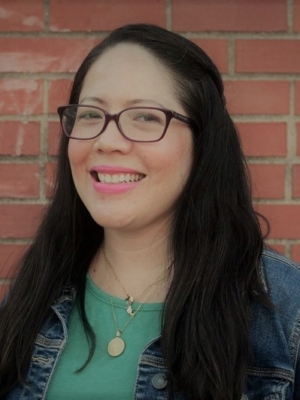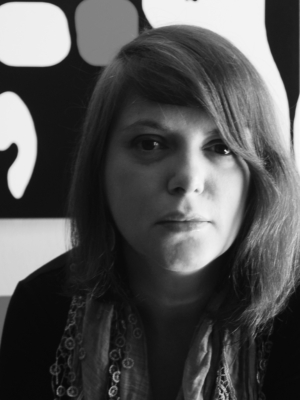Marrow/ Boat People/ Balsero/ Ritual/ Exequias
[translated poetry]
Marrow
Havana reverberates, resists,
bursting through the cobblestones.
Light years,
I sense a galaxy of infant stars.
I don’t use its name and it doesn’t use mine.
Havana keeps in me the never-to-be-repeated,
pressing like a nerve;
behind everything, always,
amber of summer.
Havana hurts me for the first time
my body finding a ritual:
my father and I in the Alameda de Paula,
my mother’s hand, my compass.
Sometimes it sings a tune,
changes my voice,
blows some dust and I don’t notice.
Monster mouth,
like a remora clinging to my hips.
Havana whispers within me, always within me,
uncomfortable ghost;
slowly pressing my skull,
Queen of Water
claims my head.
Boat People
They brought them in ships, chained like animals.
Congos, they believed that body and soul,
in death,
returned together to the land of their ancestors.
Some of them jumped into the ocean, others
arrived in Haiti,
to the white bite,
homeless bodies that could be revived.
Then came the boat people,
thousands of bodies in the Strait of Florida.
Don’t mix with the Haitianos, they told me, don’t work with the Haitianos.
Don’t you mess with voodoo.
But a Haitian nurse cradles my father at lopital,
with gentle eyes she helps him die.
Hollywood makes movies about zombies,
shows about zombies
zombies about zombies
horrible zombies
that eat everything and infect everything
and a Haitian nurse sings to my father at lopital, helps him die,
Madame Brigitte’s white robe.
But do not mix with the Haitianos, they told me.
They brought them in ships,
chained like animals.
Balsero
Everything is dark here.
If not for the blue dome, I’d think
I was swallowed by the whale.
At least Jonah was there for three days.
The ocean
always the same:
an asylum of black or blue walls.
Santa Cachita, Mother of God, pray for us sinners, for us balseros.
This strait, a cemetery
the length of God’s hand.
Sometimes it sleeps and it lets us fall,
Cubans and Haitians, turquoise lullaby.
I hope the storm doesn’t come,
I hope the storm doesn’t knock me over,
No chance for a Virgin Mary apparition.
I’d rather die here anyway
than go back
to a ghost country, to a lifeless life.
I row and I pray,
almost the same thing.
Beyond the horizon, my home
Beyond the horizon, my sweetheart
her warm body inhabited by clams.
I have watched the sun sinking many times, many times.
The moon says not today,
I won’t die today
The moon says beyond the horizon,
row and pray.
Just loneliness here, silence,
white garments during the day,
black garments at night.
and if not for the stars
I’d think
a monstrous, biblical animal swallowed me.
Give me your signal, North Star.
Santa Cachita, Mother of God, pray for us sinners, for us balseros.
The moon says not today,
I won’t die today.
Ritual
Go to the water
and spit in the river.
Turn around three times.
A shot of rum, a bath of cariaquito morado,
tie aloe vera to your back
and cross yourself
against the jungle out there
and all those witches and all those demons
and all those seven-headed snakes.
Exequias
Give the widow a veil,
hide her from the world,
light the lamps now.
Her husband has died in a foreign land,
there’s no pater familias to officiate the ceremony.
The sea shall be crossed
in seven days
and seven nights,
sacrificing a lamb for the exequias.
The ships must be guided
at the break of dawn.
To inhabit grief is to inhabit a larva:
a deformed viscosity with many heads.
The king has died,
sound the seashell horns,
no one shall speak.
Her home is like spilled milk.
Her husband has died
in a foreign land.
![]()
Tuétano
La Habana reverbera, se resiste,
revienta en los adoquines.
Años luz,
presiento su galaxia de estrella niña.
No la nombro ni me nombra.
La Habana guarda en mí lo irrepetible,
pulsa como un nervio;
detrás de todo, siempre,
el ámbar de su verano.
Me hiere por vez primera
mi cuerpo descubriendo su costumbre:
mi padre y yo en la Alameda de Paula,
la mano brújula de mi madre.
A veces canta su cancioncilla,
cambia mi voz,
sopla sus polvos sin que la vea.
Boca monstruosa,
como una rémora se aferra a mis caderas.
La Habana susurra en mí, siempre en mí,
fantasma incómodo;
despacio me aprieta el cráneo,
Reina de Agua
reclama mi cabeza.
Boat People
Los trajeron en barcos, amarrados como bestias.
Congos, creían que cuerpo y alma
al morir
regresaban juntos a la tierra de los ancestros.
Unos se lanzaron al mar, otros
llegaron a Haití,
a la mordedura blanca,
cuerpos sin casa que podían ser revividos.
Luego vinieron los boat people,
miles de muertos en el Estrecho de La Florida.
—No te juntes con haitianos—me dijeron—No trabajes con haitianos.
Con el vudú no te metas.
Pero una enfermera haitiana acuna a mi padre en lopital,
con ojos compasivos lo ayuda a morir.
Hollywood hace películas sobre zombis,
series sobre zombis
zombis sobre zombis
malísimos
que se comen e infectan todo
y una enfermera haitiana acuna a mi padre en lopital, lo ayuda a morir,
la bata blanca de Madame Brigitte.
Pero no te juntes con haitianos, me dijeron.
Los trajeron en barcos,
amarrados como bestias.
Balsero
Todo está oscuro aquí.
Si no fuera por la bóveda celeste, pensaría
que me tragó la ballena.
Al menos Jonás estuvo tres días.
El mar
es siempre lo mismo:
un manicomio de paredes negras o azules.
Santa Cachita, Madre de Dios, ruega por nosotros los pecadores, los balseros.
Este estrecho es un cementerio,
tiene el largo de la mano de Dios.
A veces se duerme y nos deja caer,
cubanos y haitianos arrullo turquesa.
Espero no venga la tempestad,
espero la tempestad no me vuelque,
no va a aparecer La Virgen.
De todas formas prefiero morir aquí
a regresar
a un país espectro, a una vida sin vida.
Remo y rezo,
una letra de diferencia.
Detrás del horizonte está mi casa.
Detrás del horizonte mi mujer,
su cuerpo tibio poblado de almejas.
He visto al sol hundirse muchas veces, muchas veces.
Dice la luna que hoy no,
que hoy no voy a morirme.
Dice la luna que detrás del horizonte,
que reme y rece.
Aquí todo es soledad, silencio,
ropa blanca para el día,
ropa negra para la noche
y si no fuera por las estrellas
pensaría
que me tragó un animal monstruoso, bíblico.
Dame tu seña, estrella polar.
Santa Cachita, Madre de Dios, ruega por nosotros los pecadores, los balseros.
Dice la luna que hoy no,
que hoy voy a morirme.
Rito
Ve al agua,
escupe en el río.
Gira tres veces.
Un guamazo de ron, cariaquito morado,
amárrate una penca en la espalda
y persígnate
contra tanto manigua afuera
y tanta bruja y tanto diablo
y tanta culebra de siete cabezas.
Exequias
Dadle un velo a la viuda,
ocultadla del mundo,
prended ya las lámparas.
Ha muerto el esposo en tierra extranjera,
no hay pater familias que oficie las ceremonias.
Habrá que atravesar el ponto
por siete días
con siete noches,
inmolar un cordero para las exequias.
Habrá que enrumbar las naves
cuando despunte el sol.
Vivir el luto es vivir la larva:
una viscosidad deforme con muchas cabezas.
El rey ha muerto,
sonad las caracolas,
que nadie hable.
Se ha derramado su hogar como leche en un cuenco.
Ha muerto el esposo
en tierra extranjera.
Translator’s Statement
A translation is the intimate reading of a text. After hearing this in a seminar at the Iowa Writer’s Workshop, I knew that in order to commit to a translation project, it was essential that I found a strong connection with the original work. This is what happened when I read Kelly Martínez-Grandal’s poetry—a connection so strong that I felt the need to honor it with my own interpretation—a sense of urgency that these were poems that needed to exist in English. The selection I chose to translate is part of a collection called Zugunruhe. Of German origin, this term is a compound word that denotes movement/migration (zug) and anxiety/restlessness (unruhe), and it is used in ethology to study the migratory anxiety of animals. As a double immigrant herself (from Cuba to Venezuela when she was a teenager, and then to South Florida as an adult), Martínez-Grandal believes that this term describes painfully and beautifully the feelings we immigrants go through from the moment we decide—or are forced to—emigrate, to the ones that take over once we must adapt to our new surroundings. The photographic nature of the images in Martínez-Grandal’s poems (the author is a curator of photography) was often a challenge to reconstruct in the English text. I had to rephrase some verses in order to maintain the visual quality of the original. Throughout the translation process, I sought to find a balance: I did not want to interpret the text too much for the readers. When translating Kelly Martínez-Grandal, this is always a temptation given her provocative imagery.
Melanie Márquez Adams is the author of Mariposas Negras (Eskeletra Editorial, 2017), a short story collection and winner of a North Texas Book Festival Award. She is a 2018-19 Iowa Arts Fellow, and recipient of an International Latino Book Award. Nominated for Best Small Fictions and Best of the Net, her work has appeared in The Hong Kong Review, Aster(ix), Hostos Review, and elsewhere. She co-edited Ellas Cuentan: Antología de Crime Fiction por Latinoamericanas en EEUU (Sudaquia, 2019) and her bilingual collection of personal essays is forthcoming from Katakana. She is currently an MFA candidate in Spanish creative writing at the University of Iowa.
Photo Credit: Oriette D’Angelo
Kelly Martínez-Grandal is a Cuban poet and author of Medulla Oblongata (CAAW, 2017), her first poetry collection. Her work has been published in 102 poetas en jamming, ¡Basta! Cien mujeres contra la violencia de género, and Aquí [Ellas] en Miami, as well as in several anthologies. She holds a bachelor of arts and a master’s degree in comparative literature, both from Central University of Venezuela, where she lived for twenty years. Her new poetry collection, Zugunruhe, is forthcoming from The Operating System in a bilingual edition that will be translated by Margaret Randall. She lives in Miami, FL.
Photo Credit: Gilda Pérez






